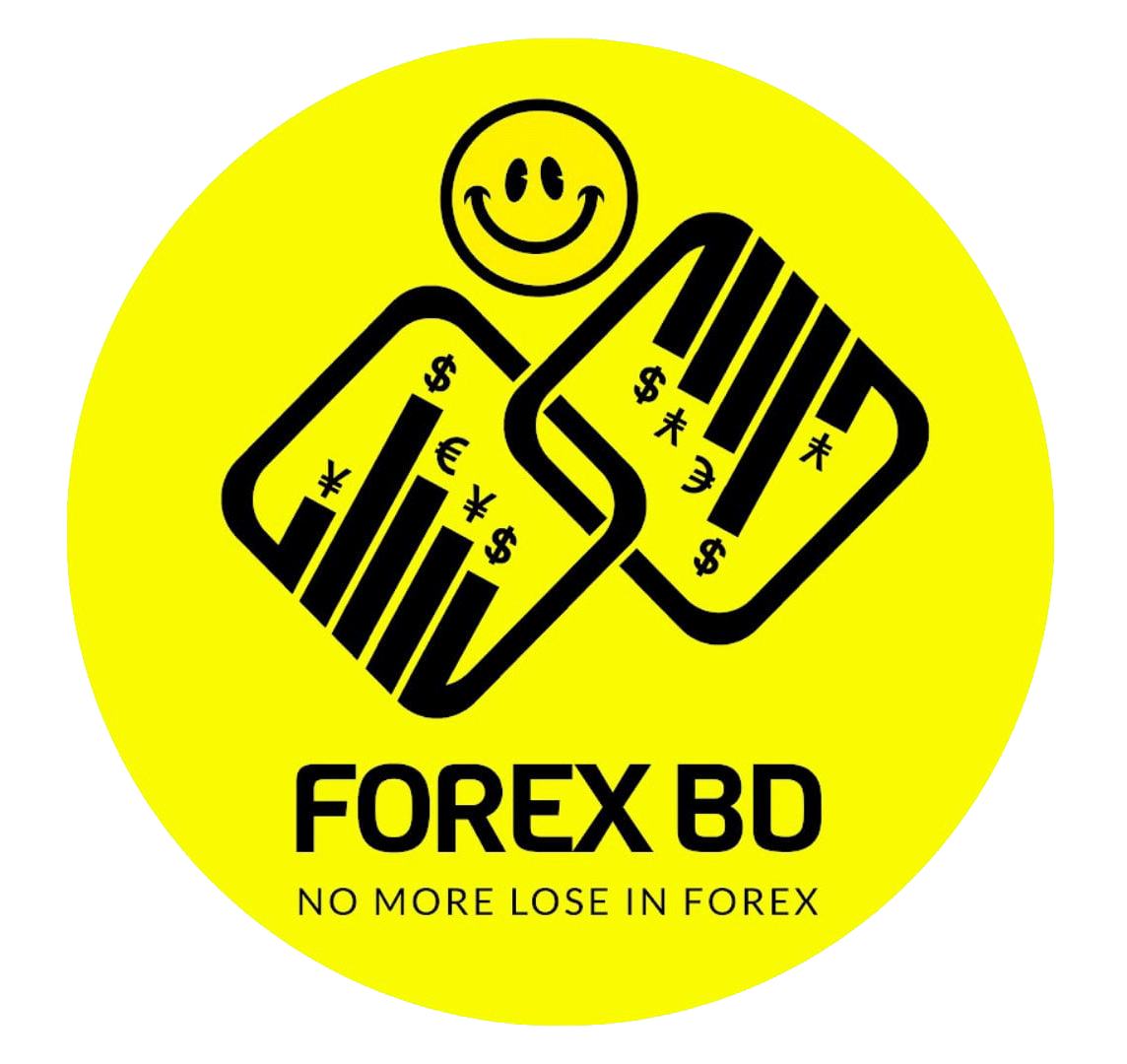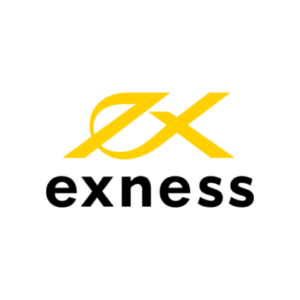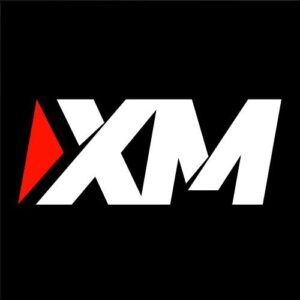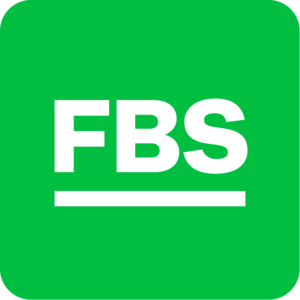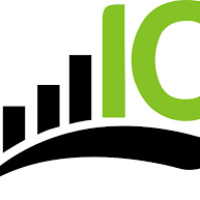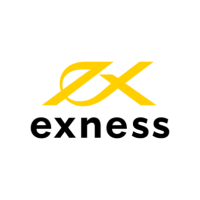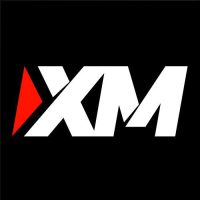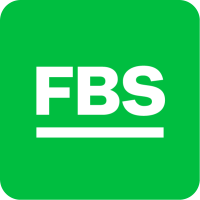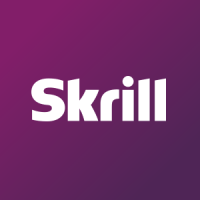If you’re looking to trade financial instruments online, you’ll need a reliable platform to facilitate your trades. With so many options available, it can be overwhelming to choose the right one for your needs. In this article, we’ll explore the world of web trader platforms, including what they are, how they work, and what to look for when selecting a platform.
Table of Contents
- What is a Web Trader Platform?
- Advantages of Using a Web Trader Platform
- How Does a Web Trader Platform Work?
- Types of Web Trader Platforms
- Key Features of Web Trader Platforms
- How to Choose a Web Trader Platform
- Security and Regulation of Web Trader Platforms
- Common Mistakes to Avoid When Using a Web Trader Platform
- Best Web Trader Platforms
- Tips for Successful Trading on Web Trader Platforms
- Conclusion
What is a Web Trader Platform?
A web trader platform is an online trading platform that allows traders to access the financial markets through a web browser. Unlike traditional trading platforms that require software downloads, web trader platforms are accessible from anywhere with an internet connection and a browser. This makes them a popular choice for traders who want the convenience of being able to trade on-the-go.
Advantages of Using a Web Trader Platform
Using a web trader platform offers several advantages over traditional trading platforms, including:
- Accessibility: Web trader platforms can be accessed from anywhere with an internet connection, allowing traders to trade on-the-go.
- Ease of use: Web trader platforms are typically user-friendly, making them a great option for beginners.
- No software downloads: Unlike traditional trading platforms, web trader platforms do not require software downloads, saving traders time and hassle.
- Real-time data: Web trader platforms offer real-time data, allowing traders to make informed trading decisions.
- Customizable: Many web trader platforms offer customizable features, such as watchlists and alerts, allowing traders to tailor the platform to their individual needs.
How Does a Web Trader Platform Work?
Web trader platforms work by connecting traders to the financial markets through their web browser. When a trader places a trade on a web trader platform, the platform communicates with a broker to execute the trade on the trader’s behalf. This process is known as order routing.
Web trader platforms typically offer a range of trading tools and features, such as charting tools, technical indicators, and news feeds, to help traders make informed trading decisions. Many platforms also offer demo accounts, allowing traders to practice trading strategies without risking real money.
Types of Web Trader Platforms
There are several types of web trader platforms available, including:
- Broker-owned platforms: These platforms are owned and operated by brokers and are typically only available to their clients.
- Independent platforms: These platforms are not affiliated with any particular broker and can be used with multiple brokers.
- Mobile platforms: These platforms are specifically designed for mobile devices and offer a range of trading tools and features.
Key Features of Web Trader Platforms
When selecting a web trader platform, it’s important to consider the key features that the platform offers. Some of the most important features to look for include:
- Real-time data: Look for a platform that offers real-time data, allowing you to make informed trading decisions.
- Trading tools: Look for a platform that offers a range of trading tools and features, such as charting tools, technical indicators, and news feeds.
- Customizability: Look for a platform that offers customizable features, such as watchlists and alerts, allowing you to tailor the platform to your individual needs.
- Security: Look for a platform that uses industry-standard security measures to protect your personal and financial information.
- Demo account: Look for a platform that offers a demo account, allowing you to practice trading strategies without risking real money.
How to Choose a Web Trader Platform
Choosing the right web trader platform can be a daunting task, but there are several factors to consider when making your decision. Here are some tips to help you choose the right platform for your needs:
- Consider your trading style: Are you a day trader or a swing trader? Do you prefer to trade stocks, forex, or commodities? Consider your trading style and the instruments you prefer to trade when selecting a platform.
- Look for user-friendly platforms: Look for platforms that are easy to use and navigate, particularly if you are new to trading.
- Read reviews: Read reviews from other traders to get an idea of the pros and cons of different platforms.
- Consider the fees: Look for platforms with competitive fees, including commissions, spreads, and withdrawal fees.
- Check the platform’s security and regulation: Look for platforms that use industry-standard security measures to protect your personal and financial information, and check that the platform is regulated by a reputable regulatory body.
Security and Regulation of Web Trader Platforms
When trading online, it’s important to ensure that your personal and financial information is protected. Look for web trader platforms that use industry-standard security measures, such as SSL encryption and two-factor authentication, to protect your data.
It’s also important to check that the web trader platform is regulated by a reputable regulatory body, such as the Financial Conduct Authority (FCA) in the UK or the Securities and Exchange Commission (SEC) in the US. Regulation ensures that the platform operates in a transparent and fair manner, protecting traders from fraud and manipulation.
Common Mistakes to Avoid When Using a Web Trader Platform
When using a web trader platform, there are several common mistakes to avoid, including:
- Overtrading: Overtrading can lead to significant losses. Stick to your trading plan and avoid impulsive trades.
- Not using stop-loss orders: Stop-loss orders can help minimize losses in case of unexpected market movements.
- Trading without a strategy: Develop a trading strategy and stick to it. Trading without a strategy is a recipe for failure.
- Ignoring risk management: Proper risk management is crucial for long-term success in trading. Don’t ignore it.
Best Web Trader Platforms
There are many web trader platforms available, each with its own pros and cons. Some of the best web trader platforms include:
- MetaTrader 4 (MT4): MT4 is one of the most popular web trader platforms, offering a range of trading tools and features, including automated trading.
- cTrader: cTrader is a user-friendly platform that offers advanced charting tools and a wide range of order types.
- TradingView: TradingView is a social trading platform that allows traders to share ideas and collaborate with other traders.
Tips for Successful Trading on Web Trader Platforms
To be successful in trading on web trader platforms, consider the following tips:
- Develop a trading plan and stick to it.
- Use risk management techniques to minimize losses.
- Stay informed about market news and events that may impact your trades.
- Use a demo account to practice trading strategies before risking real money.
- Avoid emotional trading decisions.
Conclusion
A web trader platform can be a powerful tool for traders, offering access to the financial markets from anywhere with an internet connection. When choosing a web trader platform, it’s important to consider the platform’s features, fees, and security measures, as well as your own trading style and preferences. By following the tips and strategies outlined in this article, you can maximize your chances of success when trading on web trader platforms.
Name
Details
Rating
Regulation: CySEC, FCA, DFSA, FSCA, FSA, CMA
Founded: 2008
Founders: Petr Valov, Igor Lychagov
Year Founded : 2008
Deposit Methods: VISA, MasterCard, Neteller, Skrill, WM, PM, Crypto (MORE)
Leverage: 1:30 | 1:500
Regulation: CySEC, FCA, DFSA, FSCA, FSA.
Min. Deposit: 5 US$
Min. Withdraw : 5 US$
HQ: Sydney, Australia
Platforms: MT4, MT5, ctrader, web trading
Found in: January 30, 2007
Deposit Methods: Bank Wire (BankTransfer), VISA, MasterCard, Neteller, Skrill, WM, PM, Crypto
Year Founded : 2010
Cryptocurrencies:
 Yes
YesDeposit Methods: Local Deposit, Bank Wire (BankTransfer), VISA, MasterCard, Neteller, Skrill, WM, PM, Crypto, USDT
Year Founded : 2010
Cryptocurrencies: (5+) Bitcoin, Litecoin, Ethereum
Deposit Methods: Local Deposit, Bank Wire (BankTransfer), VISA, MasterCard, Neteller, Skrill, WM, PM, Crypto, USDT (MORE)
Year Founded : 2009
Cryptocurrencies:



Deposit Methods: Bank Wire (BankTransfer/SWIFT), VISA, MasterCard, Alipay, Bitcoin, Bitcoin Cash, Boleto, Ether/Ethereum, Litecoin, Local Bank Deposits, M-Pesa, Mobile Money, Monero, PerfectMoney, Ripple, WebMoney
Year Founded : 2009
Cryptocurrencies:



Deposit Methods: Local Deposit, Bank Wire (BankTransfer), VISA, MasterCard, Neteller, Skrill, WM, PM, Crypto, USDT
Year Founded : 2009
Cryptocurrencies:



Deposit Methods: Bank Wire (BankTransfer/SWIFT), VISA, MasterCard, Alipay, Bitcoin, Bitcoin Cash, Boleto, Ether/Ethereum, Litecoin, Local Bank Deposits, Mobile Money, PerfectMoney, WebMoney, USDT
Year Founded : 2011
Cryptocurrencies: (25+) Bitcoin, Litecoin, Ethereum
Deposit Methods: Bank Deposit, VISA, awepay, Bitcoin, FasaPay, Local Bank Deposits, Local Bank Transfers, Neteller, paytm, Skrill, UnionPay, USDT
Leverage: 1:20 | 1:500
Regulation: CySEC, FCA, DFSA, FSCA, FSA.
Min. Deposit: 50 US$
Min. Withdraw : 50 US$
HQ: Australia, Cyprus, and the UK.
Platforms: MT4, cTrader, web trading
EAs/Robots: ✅ Yes | News Trading: ✅ Yes | Scalping: ✅ Yes
Cryptocurrencies: 20+) Bitcoin, Litecoin, Ethereum
Deposit Methods: Local Deposit, Bank Wire (BankTransfer), VISA, MasterCard, Neteller, Skrill, Crypto. USDT
Leverage: 1:20 | 1:500
Regulation: CySEC, FCA, DFSA, FSCA, FSA.
Min. Deposit: 100 US$
Min. Withdraw : 100 US$
HQ: Cyprus, the UK, Australia, and the United States.
Platforms: MT4, cTrader, web trading
EAs/Robots: ✅ Yes | News Trading: ✅ Yes | Scalping: ✅ Yes
Cryptocurrencies: 20+) Bitcoin, Litecoin, Ethereum
Deposit Methods: Local Deposit, Bank Wire (BankTransfer), VISA, MasterCard, Neteller, Skrill, Crypto. USDT
Leverage: 1:20 | 1:500
Regulation: CySEC, FCA, DFSA, FSCA, FSA.
Min. Deposit: 50 US$
Min. Withdraw : 50 US$
HQ: Australia, Cyprus, and the UK.
Platforms: MT4, cTrader, web trading
EAs/Robots: ✅ Yes | News Trading: ✅ Yes | Scalping: ✅ Yes
Cryptocurrencies: 20+) Bitcoin, Litecoin, Ethereum
Deposit Methods: Local Deposit, Bank Wire (BankTransfer), VISA, MasterCard, Neteller, Skrill, Crypto. USDT
Year Founded : 2010
Cryptocurrencies:



Deposit Methods: Local Deposit, Bank Wire (BankTransfer), VISA, MasterCard, Neteller, Skrill, WM, PM, Crypto, USDT
A Forex broker is a financial services company that provides traders with access to the foreign exchange market. The primary function of a Forex broker is to facilitate the buying and selling of currencies by acting as an intermediary between the trader and the market ( Forex BD / BD Forex / ForexBD / ForexBDLTD / Forex bd LTD / @forexbd )..
Forex brokers offer traders a variety of services, including trading platforms, market analysis, and educational resources. They also provide access to leverage, which allows traders to control larger positions with a smaller amount of capital.
Forex brokers can operate in different ways, such as market makers, which set their own bid and ask prices and take the opposite side of their clients’ trades, or as agency brokers, which pass their clients’ orders directly to the market without any intervention.
Choosing a reliable and trustworthy Forex broker is important for traders to ensure that they receive fair and transparent pricing, access to a range of financial instruments, and adequate customer support ( Forex BD / BD Forex / ForexBD / ForexBDLTD / Forex bd LTD / @forexbd )..
Forex brokers play an important role in the foreign exchange market by providing liquidity and enabling traders to participate in the market with ease. Forex brokers offer a wide range of services and tools to traders, including:
Trading Platforms: Forex brokers provide traders with access to trading platforms that allow them to place trades, analyze the market, and manage their trading accounts.
Market Analysis: Forex brokers offer traders access to market analysis, including news, research, and economic data. This can help traders make informed decisions about when to enter or exit the market.
Educational Resources: Forex brokers often provide educational resources, such as webinars, videos, and tutorials, to help traders improve their trading skills and knowledge.
Leverage: Forex brokers offer traders access to leverage, which allows traders to control larger positions with a smaller amount of capital. However, it’s important to note that leverage can increase both potential profits and losses.
Customer Support: Forex brokers provide customer support to help traders with any questions or issues they may have ( Forex BD / BD Forex / ForexBD / ForexBDLTD / Forex bd LTD / @forexbd )..
When choosing a Forex broker, traders should consider factors such as the broker’s reputation, regulation, trading conditions, fees and commissions, and customer support. It’s important to choose a broker that is reliable, transparent, and offers competitive pricing and trading conditions.
Forex brokers provide traders with access to various types of trading platforms, each with its own unique features and advantages. Here are some of the most common types of Forex broker platforms:
MetaTrader 4 (MT4): MT4 is one of the most popular Forex trading platforms, used by millions of traders worldwide. It is known for its user-friendly interface, extensive charting tools, and support for automated trading through Expert Advisors (EAs) ( Forex BD / BD Forex / ForexBD / ForexBDLTD / Forex bd LTD / @forexbd )..
MetaTrader 5 (MT5): MT5 is the newer version of MT4 and offers additional features and improvements, such as more advanced charting tools, additional order types, and support for more financial instruments.
cTrader: cTrader is a trading platform that offers advanced charting tools, support for automated trading, and fast order execution. It is known for its user-friendly interface and customization options.
WebTrader: WebTrader is a browser-based trading platform that allows traders to access the market from any device with an internet connection. It is a popular choice for traders who prefer a simple and easy-to-use platform ( Forex BD / BD Forex / ForexBD / ForexBDLTD / Forex bd LTD / @forexbd )..
Mobile Trading Platforms: Forex brokers also offer mobile trading platforms that allow traders to access the market and manage their positions from their smartphones or tablets. These platforms typically offer a range of features, including real-time quotes, charts, and news updates.
When choosing a Forex broker platform, it’s important to consider factors such as ease of use, charting tools, order types, automated trading options, customization options, and compatibility with your trading style and strategy. Ultimately, the best platform for you will depend on your individual needs and preferences as a trader.
Forex brokers can be categorized into different types based on their business model and the services they offer to their clients. Here are some of the most common types of Forex brokers ( Forex BD / BD Forex / ForexBD / ForexBDLTD / Forex bd LTD / @forexbd ). :
Dealing Desk (DD) Brokers: Dealing Desk brokers, also known as market makers, act as counterparties to their clients’ trades. They provide liquidity to the market by taking the opposite side of their clients’ trades, and may also offer fixed spreads, guaranteed stop-loss orders, and other risk management tools.
No Dealing Desk (NDD) Brokers: No Dealing Desk brokers do not act as counterparties to their clients’ trades, but instead route their orders directly to liquidity providers, such as banks, financial institutions, and other brokers. NDD brokers typically offer variable spreads and faster order execution speeds than DD brokers.
Electronic Communication Network (ECN) Brokers: ECN brokers are similar to NDD brokers, but instead of routing orders to a single liquidity provider, they connect their clients to a network of liquidity providers, which compete to offer the best bid and ask prices. ECN brokers typically charge a commission for their services, but offer some of the tightest spreads and fastest order execution speeds in the market.
Straight Through Processing (STP) Brokers: STP brokers are similar to NDD brokers, but instead of routing orders directly to liquidity providers, they use automated systems to execute orders based on pre-defined trading rules. STP brokers may offer variable or fixed spreads, and may charge a commission or markup on their services.
Hybrid Brokers: Hybrid brokers combine elements of different business models, such as acting as both a market maker and an ECN broker, or offering both fixed and variable spreads. Hybrid brokers may offer a range of services and account types to meet the needs of different types of traders.
When choosing a Forex broker, it’s important to consider the broker’s business model and the services they offer, as well as their reputation, regulation, and customer support. The best broker for you will depend on your individual needs and trading style, as well as the trading conditions and fees offered by the broker.
Forex trading is a popular financial activity that involves buying and selling currencies to profit from the fluctuations in exchange rates. As with any financial activity, it is essential to choose a reputable and regulated broker to ensure the safety of your funds and a fair trading environment. In this article, we will discuss some of the top regulated forex broker houses.
Online forex trading payment methods refer to the various payment options available for forex traders to deposit or withdraw funds from their trading accounts. In the world of forex trading, payment methods play a vital role in facilitating smooth transactions, and it is important to choose a secure and reliable payment method that suits your needs.
Like, Share & Subscribe to Our Official Sites
Contact with Us :
Copyright © 2023 Forex BD
Risk Warning: Trading on financial markets carries risks. Contracts for Difference (‘CFDs’) are complex financial products that are traded on margin. Trading CFDs carries a high level of risk since leverage can work both to your advantage and disadvantage. As a result, CFDs may not be suitable for all investors because you may lose all your invested capital. You should not risk more than you are prepared to lose. Before deciding to trade, you need to ensure that you understand the risks involved and take into account your investment objectives and level of experience.
Disclaimer : Forexbd.ltd is not encouraging anyone to do forex/stock trading, as there are investments and financial risks involved. ForexBD channel or videos are educational and informative. Before deciding to invest in the forex market, you should carefully consider your investment objectives, level of experience, and risk appetite.
#ForexTrading #ForexMarket #ForexBroker #ForexSignals #ForexAnalysis #ForexEducation #ForexPlatform #ForexTools #ForexStrategy #ForexTradingTips #ForexInvesting #ForexNews #CurrencyTrading #OnlineTrading #TradingSoftware #TechnicalAnalysis #FundamentalAnalysis #RiskManagement #MarketResearch #TradingCommunity #ForexTradingSignals #ForexTradingSystem #ForexMarketAnalysis #ForexMarketNews #ForexMarketResearch #ForexTradingStrategies #ForexTrader #ForexTradingSoftware #ForexTradingCourse #ForexTradingForBeginners #ForexTradingPlatform #ForexTradingEducation #ForexTradingAcademy #ForexTradingOnline #ForexTradingCommunity #ForexTradingCharts #ForexTradingIndicators #ForexTradingAccount #ForexTradingCoach #ForexTradingRobot
